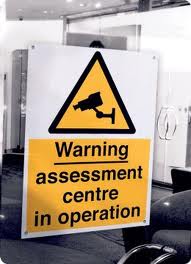Candidates applying for jobs are increasingly likely to be asked to attend a competency-based interview. Applicants shouldn’t let the name intimidate them; this is just an interview using questions designed to assess different ‘competencies’. Basing interviews on competencies adds standardisation and objectivity to the traditional interview process.
First Understand What Competencies Are
Employers increasingly judge job applicants against a list of competencies, called ‘a competency  framework’. Employers usually design competency frameworks which are tailored specifically for the role. These are based on the knowledge, skills and abilities indicative of successful job performance. For example, in an investment banking role, a typical competency framework may include: critical thinking, problem solving, numerical reasoning, resilience, etc.
framework’. Employers usually design competency frameworks which are tailored specifically for the role. These are based on the knowledge, skills and abilities indicative of successful job performance. For example, in an investment banking role, a typical competency framework may include: critical thinking, problem solving, numerical reasoning, resilience, etc.
Typically, organisations select between four and eight key competencies to form the competency framework, often with additional desirable, but not essential, competencies. These key competencies either address essential responsibilities of the role, or factors predicting job performance in that organisation.
In most cases, key competencies can be identified by researching the responsibilities and function of the role. However, many key competencies may not be so transparent to applicants, as many organisations assess the candidate’s values, motivations and behaviours. Sometimes organisations include the competency framework within the job specification during the application, or even in the job advert.
Understanding competencies is the key to good competency-based interview performance, and identifying the competency framework for the role can aid pre-interview preparation enormously.
[ALSO READ:What are Assessment Centres?]
How Competency-Based Interviews Work
Competencies-based interviews typically last 45 – 60 minutes and are highly-structured, with all candidates asked similar or identical questions. Often, these questions ask historical information regarding previous experiences in order to identify evidence of competence in a particular area. See below for example of competency-based questions and their related competency:
- Tell me when you had to manage or resolve a conflict between two or more co-workers (Competency: Interpersonal skills).
- When have you needed to solve a problem using abstract or lateral thinking? (Competency: Problem solving).
- When have you managed to convince conventionally-minded people into adopting new ideas? (Competency: Innovative Thinking).
Delving into the candidate’s past experience allows interviewers to evaluate the relevance of their experience and test their ability to think on their feet. Similarly, interviewers may ask hypothetical questions regarding what the candidates would do in a relevant workplace situation. As with traditional interviews, competency-based interviews may be conducted in person, either with a single interviewer or by a panel, or may be done over the phone or internet.
How to Conquer a Competency-Based Interview
When answering competency-based interview questions, it is recommended that candidates adopt the tried-and-tested STAR method (situation, task, action, result). The STAR method describes a four-step approach to answering competency-based questions, described below:
1. Situation: outline the scenario in which you found yourself, when this situation occurred and where it was occurring.
2. Task: describe what needed to be achieved; what your goals where and the obstacles preventing you from achieving your goal.
3. Action: describe what you actually did, what course of action was taken and why you took this course of action.
4. Result: state the outcomes of your course of action, to what extent you reached your goals and what you learned from this experience.
See more example competency-based interview questions.
Other competency-based question strategies include the CAR (context, action, result) method and the SOARA (situation, objective, action, result, aftermath) method. These methods are similar and equally effective strategies to responding to competency-based questions. Whichever method is used, answers must be clear, concise and relevant to the question.
Final Thoughts
Even highly-structured interviews can be open to subjectivity. Therefore, first impressions, presentation, and politeness may affect selection decisions, despite not being one of the competencies being formally assessed. So, general interview advice still applies to competency-based interviews: research the role; make eye contact; consider your posture; smile; try to relax; be positive and polite. Keep in mind good practice interview techniques, stick to the STAR method, and you will stand the best chance of success.
About Author: Oliver Savill is the founder of, and Director at AssessmentDay.
featured image: ©iStockphoto.com/purmar
top image: Inspiring Interns


